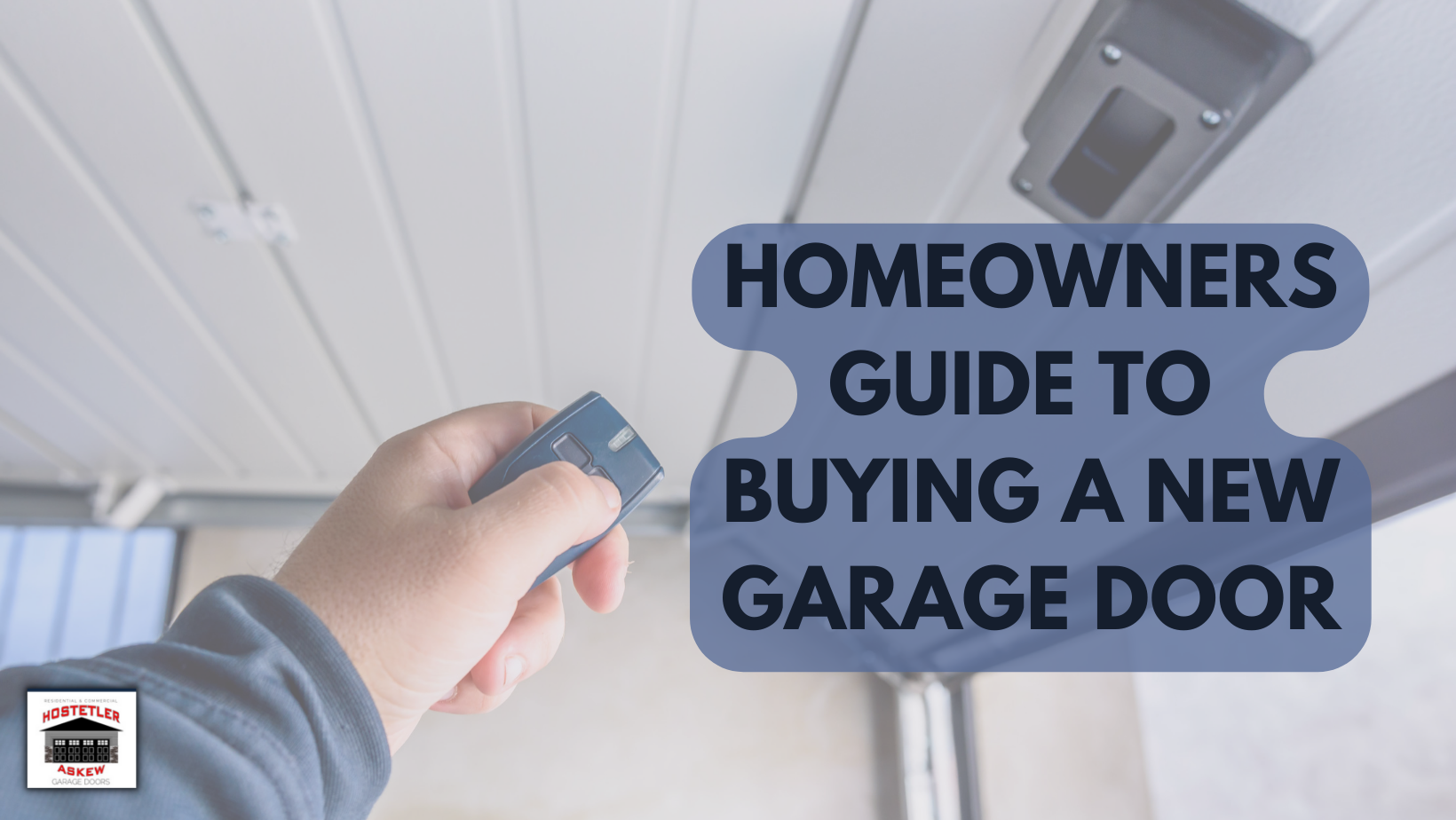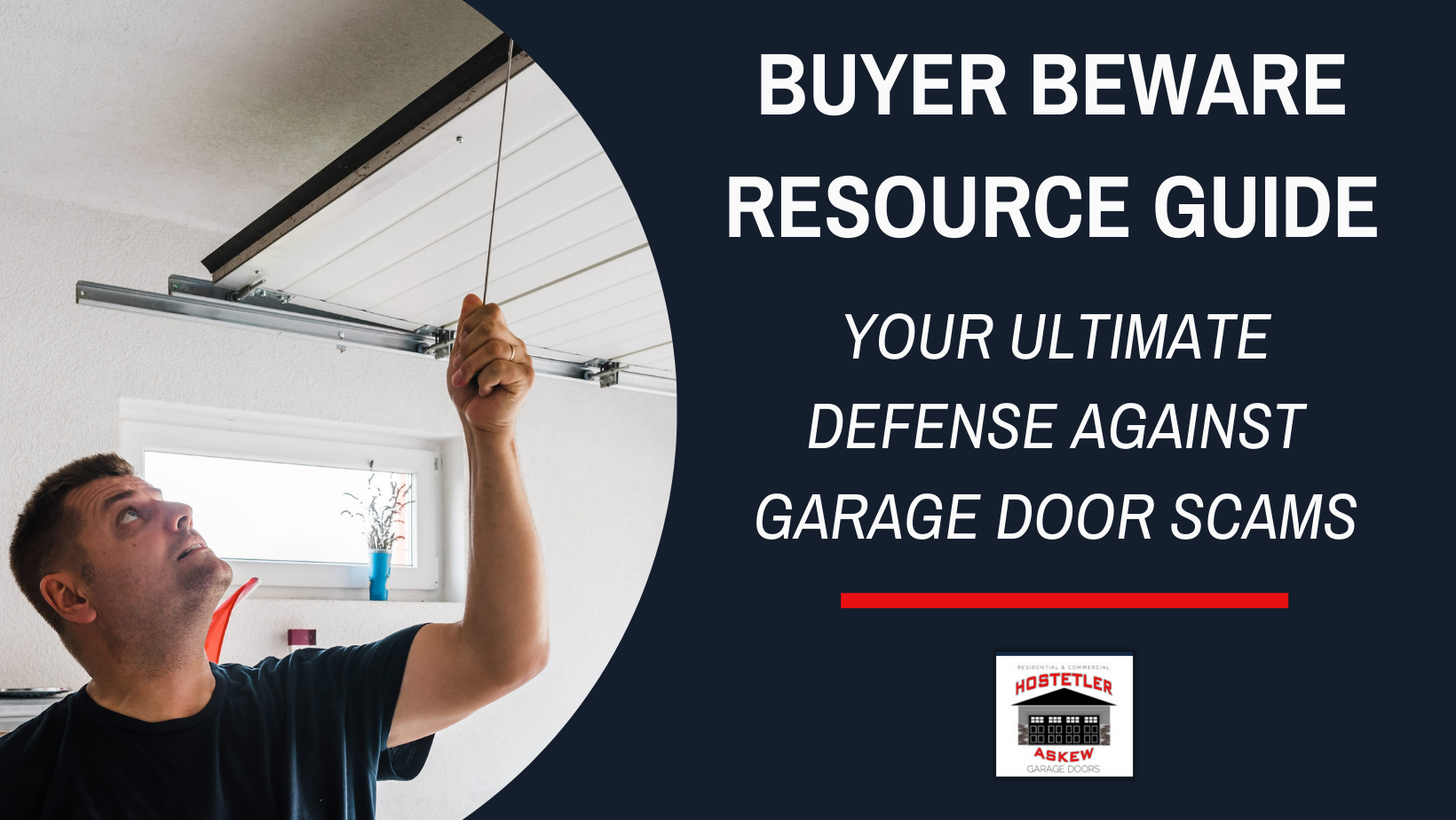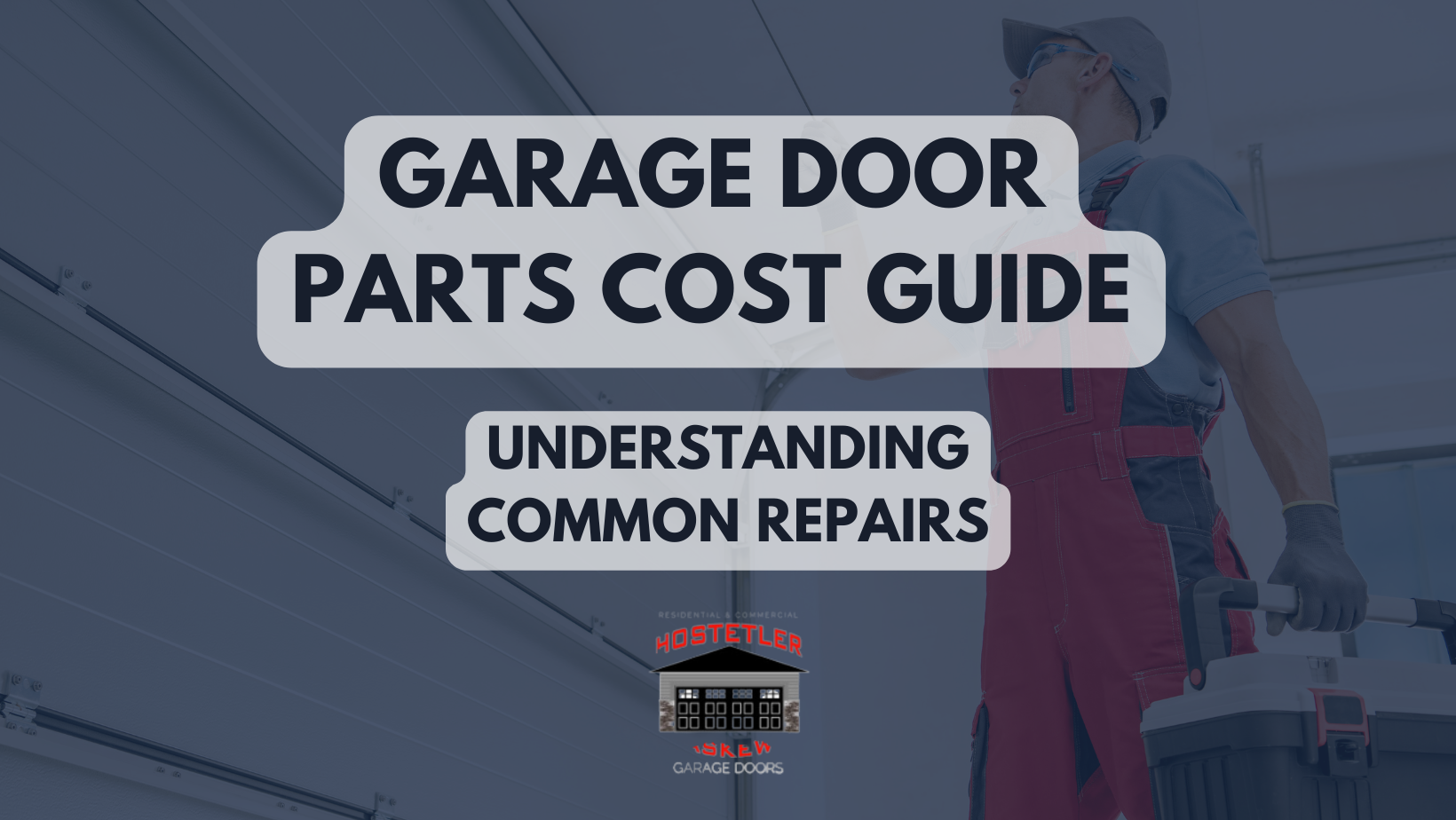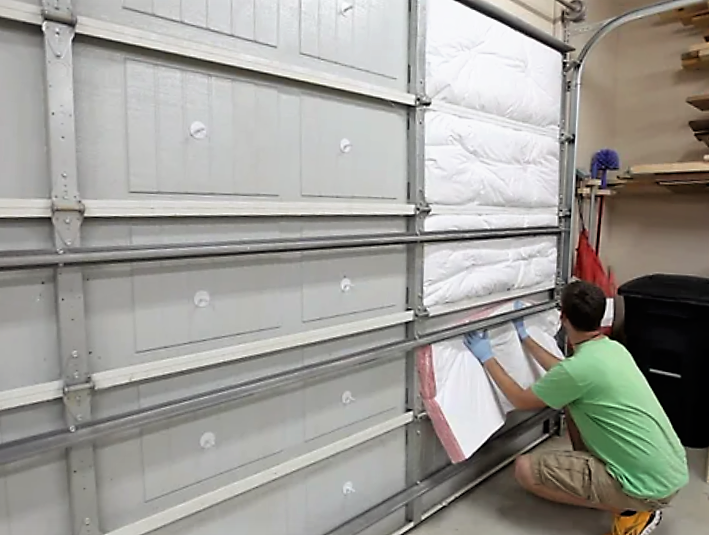Be An Educated Buyer
Navigating the world of garage doors can be a complex endeavor, especially when trying to find the best fit for your home. This comprehensive guide aims to help you become an educated buyer, understanding the different types of garage doors available, their pros and cons, pricing considerations, and expected lifespans. With our guidance, you’ll be well-equipped to decide when purchasing your next garage door whether traditional wood, durable metal, sleek glass, or lightweight fiberglass. Explore the various door types, understand what affects the cost, and learn how to ensure your garage door stands the test of time.
Understanding the Different Types of Garage Doors
A crucial but often overlooked aspect of your exterior, your garage door contributes greatly to your home’s curb appeal. As such, we offer five primary types of residential garage doors, each customizable with various materials like wood, wood composite, metal, glass, and fiberglass.
Traditional wooden doors are undeniably charming but require regular maintenance and are less resilient in extreme weather conditions. On the other hand, wood composite doors balance beauty and durability, offering improved moisture resistance and affordability. For Indiana homeowners with diverse weather conditions, metal doors made from robust steel or aluminum might be the perfect fit. They’re durable and weather-resistant, but they do conduct heat.
If you seek a more contemporary look, consider our glass doors. They’ll give your home a modern aesthetic touch, albeit with reduced privacy and durability. We also have fiberglass doors, known for their lightweight design and resistance to moisture. Our range of door types includes sectional doors, favored for their versatility fitting various garage sizes and shapes; sliding doors, an ideal choice for garages with minimal headroom; tilt-up doors, admired for their ability to complement diverse home exterior aesthetics; side-hinged doors, providing a barn door feel and conserving interior garage space; and roll-up doors, typically found in commercial settings, are appreciated for their practical design.
Pricing and Budgeting
When planning a replacement, understanding the cost considerations in buying a garage door is crucial. Remember, professional garage door replacement costs can vary, depending on numerous factors, including removing the existing door and its components and the size and quality of the new garage door.
If you’re looking for a basic, non-insulated aluminum or steel garage door, prices could start as low as $400. On the other hand, if you desire a more luxurious option, like a double garage door made from high-quality wood or glass, you might spend up to $4,700.
The size of your garage and the number of cars it holds will determine the number and size of garage doors you need. For instance, one-car garage doors typically cost between $500 and $2,000, while two-car garages could range between $1,100 and $4,700 for two single or double-width doors. Similarly, replacing doors in a three-car garage might cost between $1,700 to $7,400, depending on the number and type of doors.
When it comes to types of garage doors, the selection process should be guided by both practicality and aesthetics. Some common types include tilt-up, sectional, roll-up, and carriage house doors, with costs ranging from $500 to $7,000, depending on the style.
The material of the garage door also impacts the cost. While many opt for inexpensive options like aluminum or steel, you can choose more modern materials like wood, glass, or vinyl, albeit at a higher cost. In addition, each material carries its own future maintenance costs to consider. For instance, wood might require regular upkeep and repairs, while glass panels may occasionally need to be replaced.
Remember, the installation of certain types of garage doors, such as glass, fiberglass, or wooden ones, should be handled by a professional with relevant experience. In addition, material and labor costs can range from $600 for an aluminum door up to $5,000 for a glass one. Therefore, all these factors should be considered when planning for a garage door replacement.

How Long Should Your Garage Door Last?
As a trusted provider of garage door services in Goshen, Indiana, Hostetler & Askew aims to give homeowners clear insights into the expected lifespan of their garage doors. While most manufacturers offer warranties of roughly three years, your garage door’s actual lifespan hinges on several aspects, such as daily usage, the quality of its construction, the level of maintenance it receives, and the local weather conditions. On average, you can expect your garage door to last between 15 to 30 years and the garage door openers to work reliably for 10 to 15 years.
A significant factor determining the longevity of your garage door is the condition of the torsion and extension springs, which facilitate the smooth opening and closing of your door. Similar to a car’s brakes, these springs are often the first elements that require replacement. However , they can continue functioning effectively for another 10,000 cycles or more when replaced. While standard springs are designed for 10,000 cycles, high-cycle alternatives can endure up to 100,000 cycles.
To illustrate, a spring designed for 10,000 cycles can last around 13-14 years if operated twice a day. However, if the same spring is used eight times a day, its lifespan reduces to about three years. Therefore, should a spring break, it typically presents a good time to consider replacing other movable components of your garage door, as long as the door panels remain in satisfactory condition.

Top Questions To Ask A Garage Door Company
Here’s a concise list of 24 critical questions you should consider asking your garage door specialist to ensure their reliability and expertise:
General Inquiries Before Choosing Your Specialist:
- Are your employees licensed and insured?
- How much experience do your technicians have?
Questions When Purchasing a New Garage Door:
- What is your top-selling garage door?
- What material would you recommend for my budget?
- Which manufacturers do you offer?
- Do you provide any warranties?
- Can you provide an estimate?
- How much could I save by insulating my new garage door?
- How can I personalize my garage door?
- How long will it take for the new door to arrive?
- How long will installation take?
- Do I need to be present during installation?
- Should I also replace my garage door opener?
- Can my garage door be painted?
- Will your team dispose of my old garage door?
- How long can I expect this door to last?
- When should I anticipate needing repairs?
Questions Regarding Garage Door Maintenance:
- How frequently do you provide garage door service?
- What is included in a maintenance visit?
- Are there any tasks I should perform between your visits to maintain my door?
When You Need Garage Door Repair:
- Will you notify me before installing extra-cost parts or additional repairs?
- Can you provide a cost estimate for the repair?
- How long will the repair take?
- Do I need to be present during the repair?
Remember, only you understand your garage door’s usage patterns and typical behaviors, so asking these questions can help you maintain your garage door more effectively between professional visits.
What To Do Next?
In summary, investing in the right garage door is not merely about aesthetic appeal but also about practicality, durability, and budget. Your choice can significantly influence your home’s curb appeal, energy efficiency, and security. Hostetler & Askew in Goshen, Indiana, is committed to confidently helping you navigate these choices. We hope this guide has been insightful in understanding the world of garage doors. When you’re ready to take the next step, whether for a new installation or a repair, don’t hesitate to contact us.
Please fill out a form or give us a call! 574.444.9700







